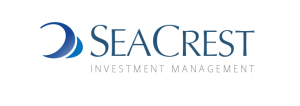With a new U.S. Administration having taken office in January, the financial markets seem to keep their optimism despite some foreseeable changes in economic policies. The Standard & Poor’s 500 was up 6.0%, the Dow Jones Industrial Average was up 5.2%, the iShares iBoxx High Grade Corporate Bond Exchange Traded Fund (ETF) was up 1.2%, while its high yield version, the largest “junk-bond” ETF by assets, returned 2.3%.
What struck us most was that the S&P moved steadily higher without any concerns throughout the first quarter. Even when the very highly anticipated Health Care Reform failed to go to a vote in Congress, marking the first defeat of the young Administration, the market barely pulled back. Subsequently, an unexpectedly strong reaction from the U.S. to the crisis in Syria shifted the market’s attention towards international geopolitics. We believe that relations between the United States and Russia are certainly going to weigh in on the markets during spring, heading into the summer months.
It should be noted that during the quarter, Wall Street research started advocating that investment spending in developed economies is likely to strengthen in the near future, given that “excess” capacity in labor markets had diminished considerably and that business confidence was firmly on the rise. Clearly, such economic data was viewed very positively by the U.S. markets. As a result and to no one’s surprise, the Federal Reserve Bank increased the federal funds rate by 25 basis points in March to its current level of 1.00%. The markets expect that this path of gradual tightening is likely to continue at least until year end. The European Central Bank is also expected to announce a tapering of its easing policy. Not to be left out, the Bank of Japan is expected to eventually raise its fund rate as well, ending an extended period of ultra-easy monetary policy.
We believe that the main U.S. investment theme for asset pricing will be focused around the policy changes undertaken by the Trump Administration. In our opinion, only a successful implementation of lower corporate and personal tax rates coupled with a reduction in regulations perceived to be “inhibiting” businesses, can actually sustain the current levels in both the stock and the bond markets. Internationally, we are closely monitoring the development of the U.S.–Russia foreign relations, tensions in the Korean Peninsula and the French and German national elections. We are convinced that both French (April) and German (May) election outcomes will provide significant clues to what the future will hold for the European Union. Although a shift of power in Germany is quite possible and not totally unexpected, the outcome of the French election will reveal a lot about the “mood” of the Europeans. France has rarely moved away from the center and therefore, a win by a far right candidate could stun the markets and the Euro. Such a win is likely to bring back Greek like risk to the international markets, with potential capital and deposit flight from France.
Stay tuned…
